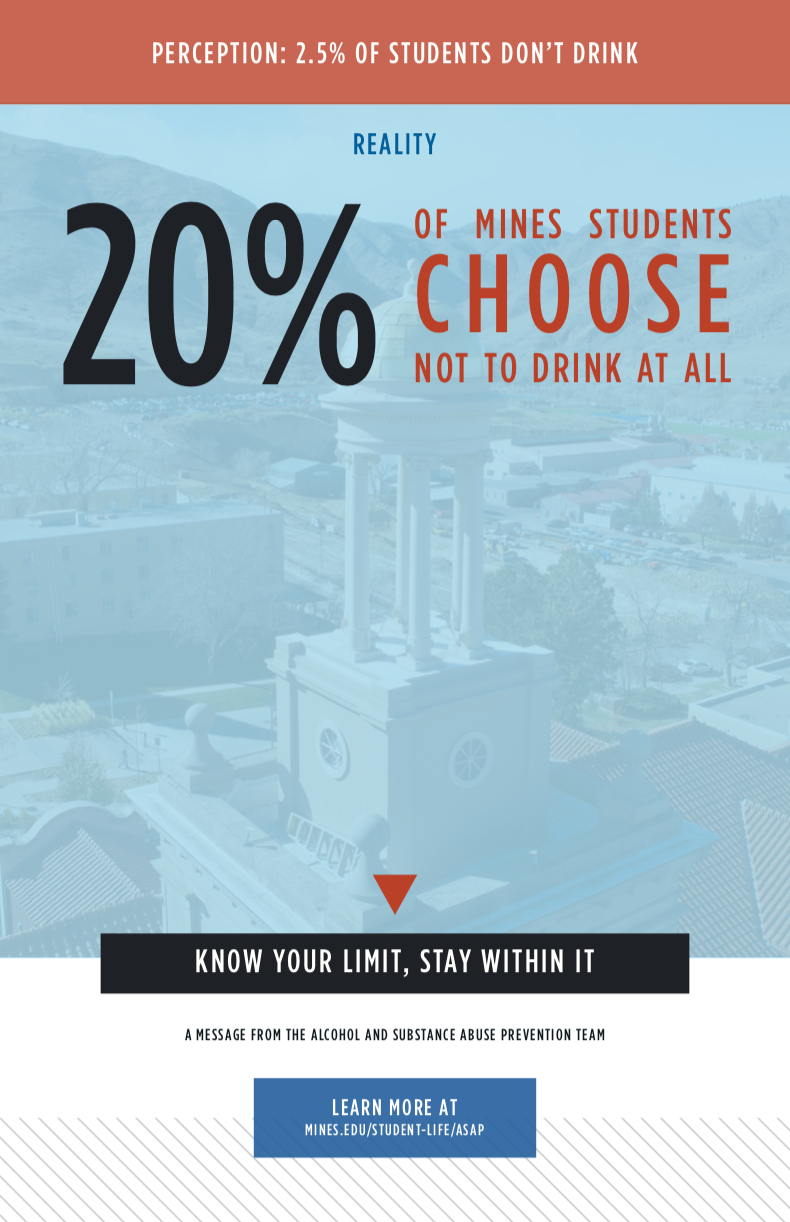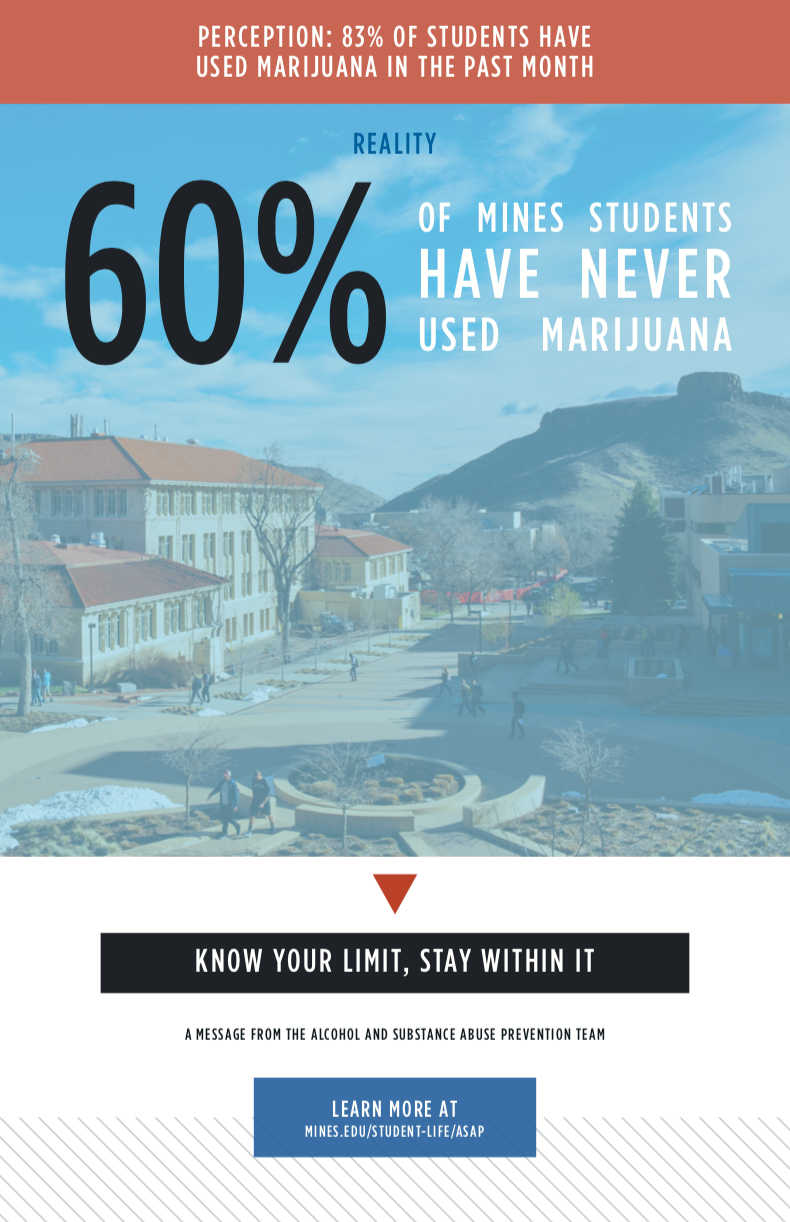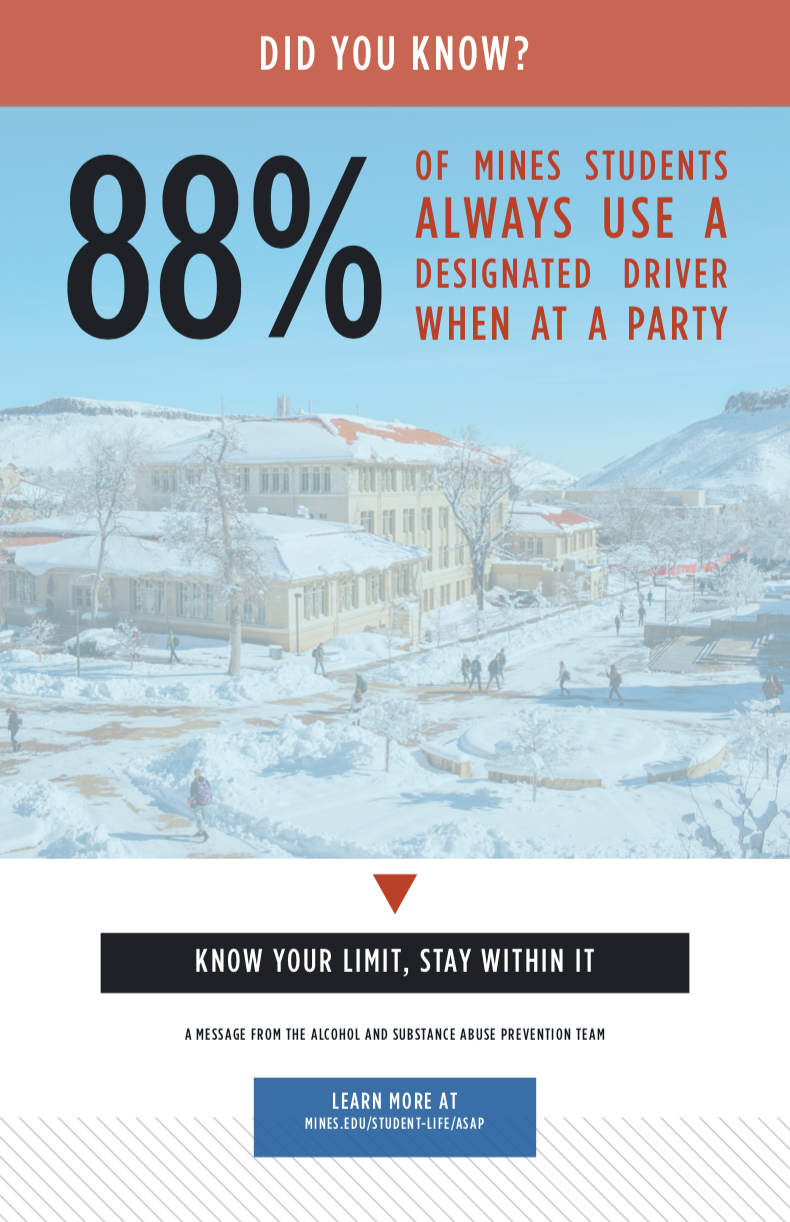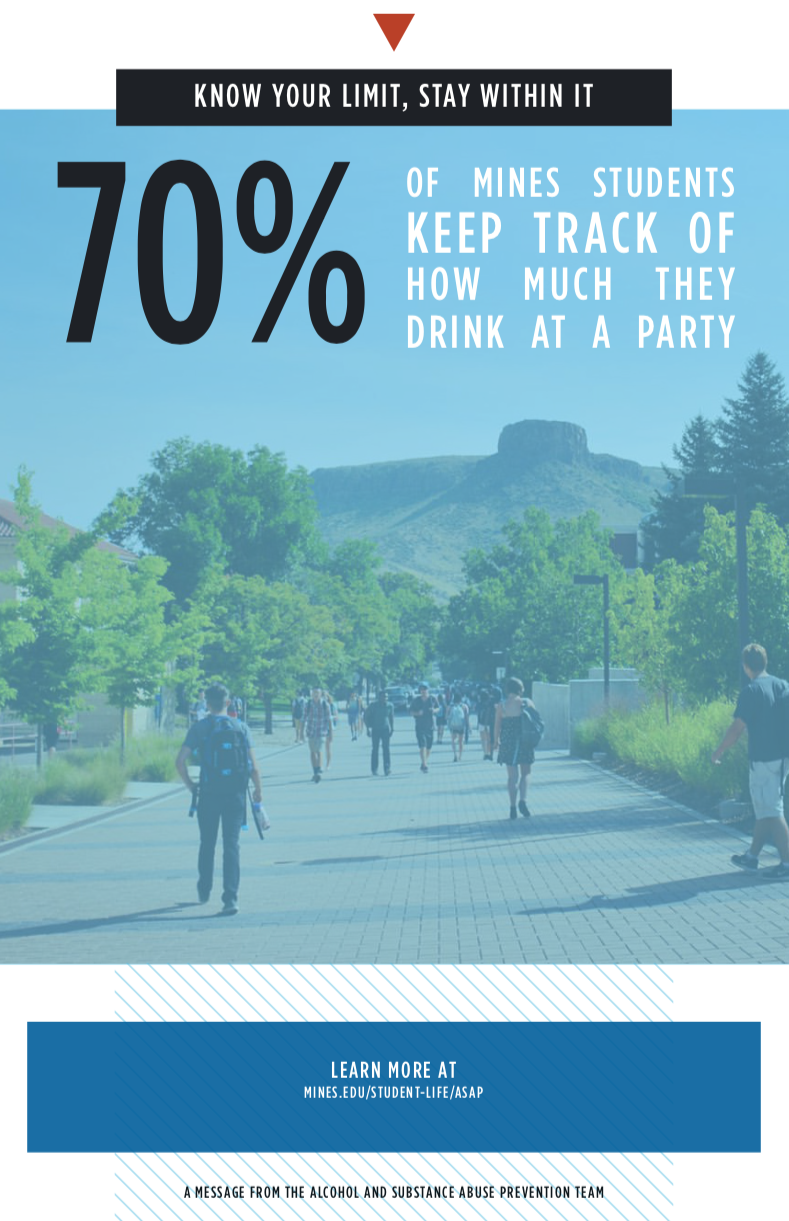Alcohol and Substance Abuse Prevention
A.S.A.P. Resources for Students
Know Your Limit. Stay Within It.
Quick Links
Assessments and Screenings
Brief screenings are the quickest way to determine if you or someone you care about should connect with a health or mental health professional. The Personal Feedback Intervention (PFI) is a free, confidential, and highly-effective tool that allows you to uncover and examine the impact and consequences of your alcohol-related behavior. Plus, you can be entered into a sweepstakes for $100 DoorDash gift cards for completing the PFI! The PFI is presented by 360 Proof—a comprehensive evidence-based program
Take a Mental Health Test with Mental Health America, including the option for an Addiction Test. Mental health conditions, such as depression or anxiety, are real, common and treatable. And recovery is possible. After your mental health test, you will see information, resources, and tools to help you understand and improve your mental health.
YOU@Mines offers three short “self-checks,” including Thrive, focused on physical and emotional well-being including alcohol and substance use. Through the YOU@Mines platform, you can find tips and tools for everything from your health to friendships and finding balance.
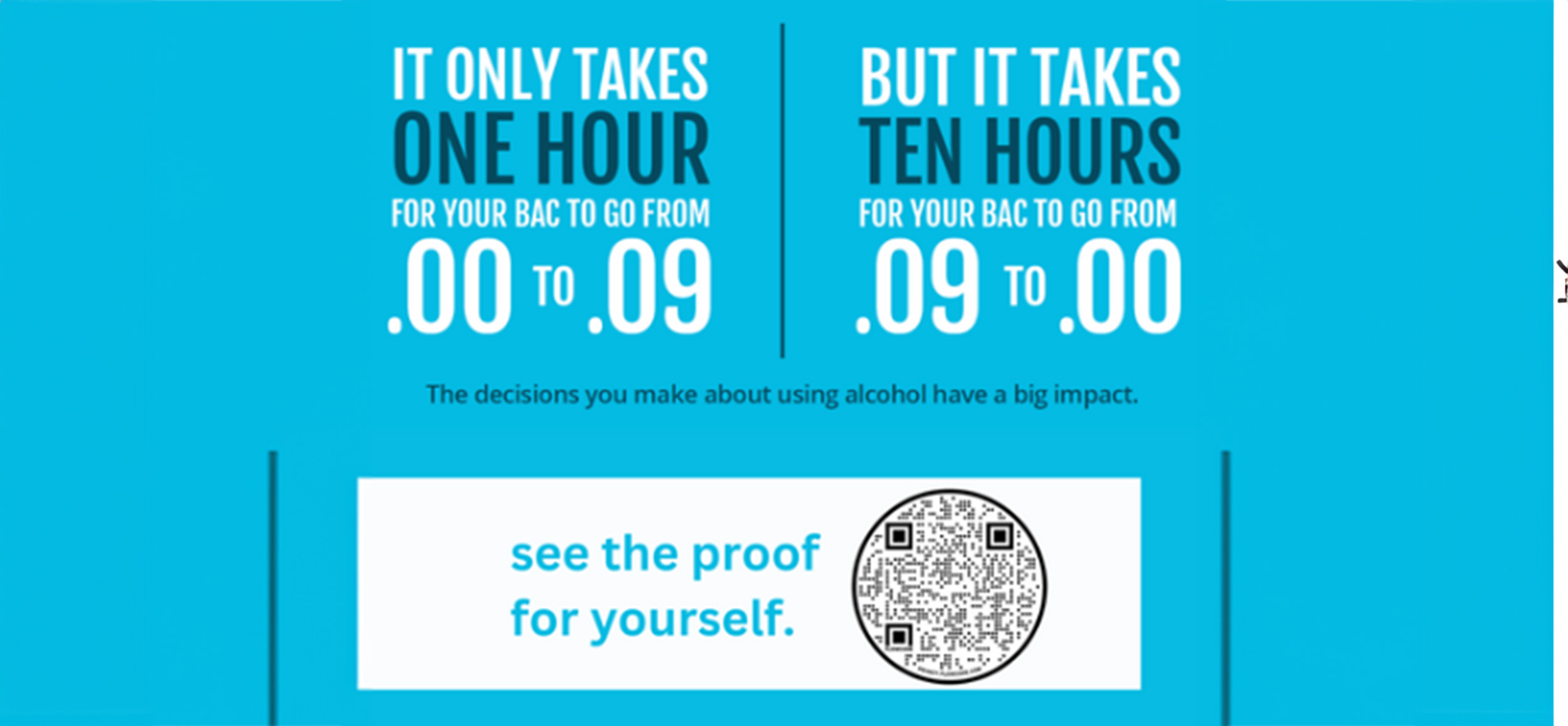
Drink Responsibly
Consuming alcohol is a huge responsibility, and we hope to give you the tools necessary to make the most responsible decisions for yourself. Our goal is for you to approach it with the right attitude to make an informed decision every time you choose to consume. You can have a great time with your friends and consume alcohol in social settings without regretting your actions later. Here are some tips to help you approach alcohol responsibly and safely.
- DRINK ONE ALCOHOLIC BEVERAGE AN HOUR: an hour is the average time it takes a body to digest and process one alcoholic beverage. So socialize, mingle, etc… while you drink.
- BE MINDFUL ABOUT WHAT YOU ARE DRINKING: Do you like the taste? How does it feel as you are consuming? How are you feeling? If you’re feeling pressured or like you have to drink to have a good time in any given situation, ask yourself why you’re drinking.
- DRINK WATER BETWEEN EACH ALCOHOLIC DRINK AND BEFORE YOU GO OUT: Drinking water will help you stay hydrated and keep you from drinking more than you want to. Drinking water will also help your body process the alcohol.
- EAT SOMETHING SUBSTANTIAL BEFORE YOU HAVE A DRINK: Drinking on an empty stomach is never a good idea and can cause your body to respond negatively to alcohol.
- USE THE BUDDY SYSTEM: If you go somewhere with friends, plan to leave with them. Know where they are throughout the night so you can each hold each other accountable as well as lookout for each other.
- KNOW EXACTLY WHAT YOU ARE DRINKING AND HOW MUCH: Avoid punches or any drink not made in front of you. Do your best to measure your portions and know how many servings you’re actually consuming. Two fingers is usually a good estimate of how much alcohol to put in a mixed drink, the rest should be mixer! Also know the serving sizes for beer and wine (12 oz for beer and 5 oz for wine).
And, remember, it is always okay to NOT drink alcohol! 20% of Mines students choose not to drink when socializing and partying.
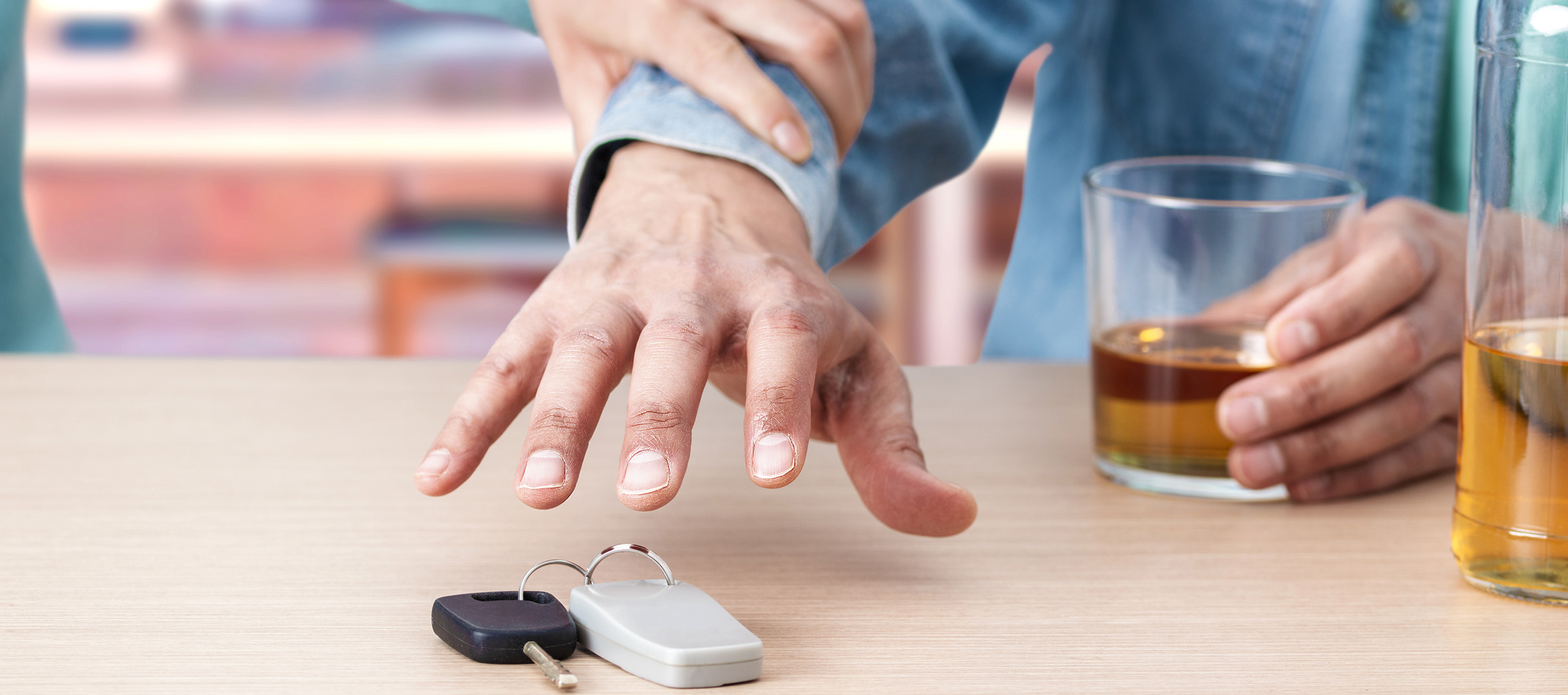
Medications and Alcohol
Over-the-counter and prescription medications can affect the way that alcohol impacts the body. The National Institute on Alcohol Abuse and Alcoholism has a helpful pamphlet that lists many medications that can cause harm when taken with alcohol and describes the effects that can result.

Assist a Friend
The signs of an alcohol or prohibited substance emergency include: confusion or disorientation, vomiting, irregular pulse, depressed breathing, inability to stay conscious, cold/clammy/blue tinged skin/lips, lack of physical coordination, slurred speech, dilated pupils or bloodshot eyes, and shakes or tremors. (Note that this is not an exhaustive list. Please use your best judgment.) If someone’s health or safety is in danger, call 911 or Campus Safety at 303-273-3333. Greek Life has created a “Friends Helping Friends” how-to guide for dealing with a friend that has been drinking too much.
Mines Student Outreach and Support (SOS) helps students navigate personal and academic challenges they may face while at Mines through case management and resource connection. If you are worried about a friend, you may make a referral to SOS. The SOS case managers have a significant amount of resources available to help students to be successful. All referrals are treated with the highest possible level of professionalism, confidentiality, and discretion. It is important that you provide as much information as possible in SOS referrals, although it is possible to make a report anonymously.
All students should know that their health, safety, and general welfare are of the utmost concern to the faculty, staff, students, and administration. Mines has established an Amnesty Policy to reduce barriers related to seeking help during medical emergencies due to fear of potential policy violations. View the full policy in Mines’ Student Code of Conduct, Section 6, B.
Good Samaritan Amnesty Policy
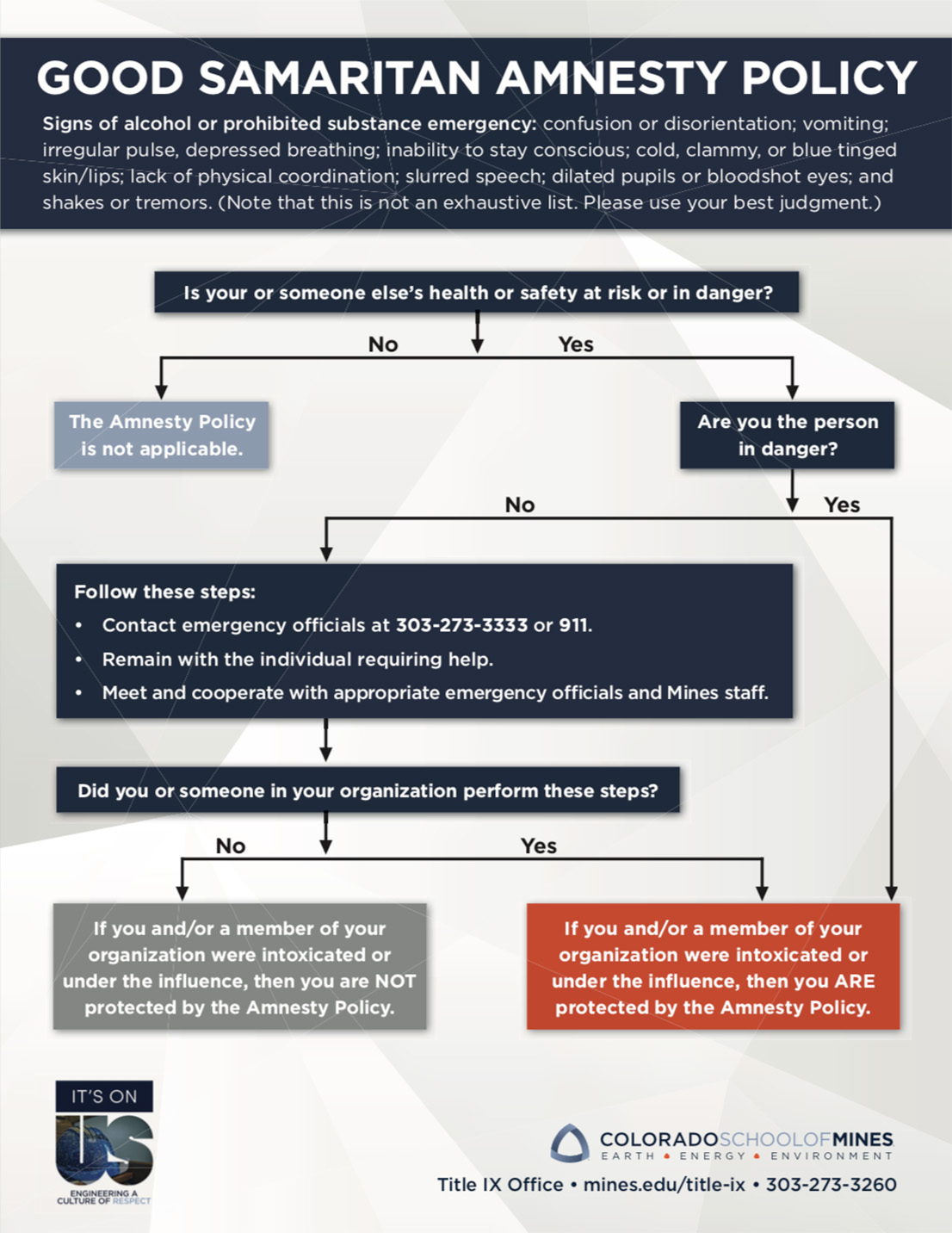
Serving Alcohol
All events at which students and alcohol are present must be properly approved by the Dean of Students prior to the event. This includes both on and off campus events as well as student events planned by faculty or staff members. Beer and wine are the only types of alcohol allowed at student events; hard liquor is never permitted at student events. Use this form to submit your request to serve alcohol. Check out Mines’ full policies regarding alcohol here.
Additional Resources
We want all Mines students to be healthy, happy, and successful members of our community. Download the Mines Drug and Alcohol Abuse Resource Guide for helpful information about area recovery support groups and treatment centers.
Educational Resources
Education and Wellness Materials from MindWise:
Alcohol and Academics
Alcohol Poisoning
Drinking and Mental Health
Drinking Games
How Alcohol Impacts Us
Practicing Mindfulness
Suicide Risk Questionnaire
Women and Alcohol
Worried About a Friend or Family Member
Materials from the Coalition of Colorado Campus Alcohol and Drug Educators:

A.S.A.P. Resources
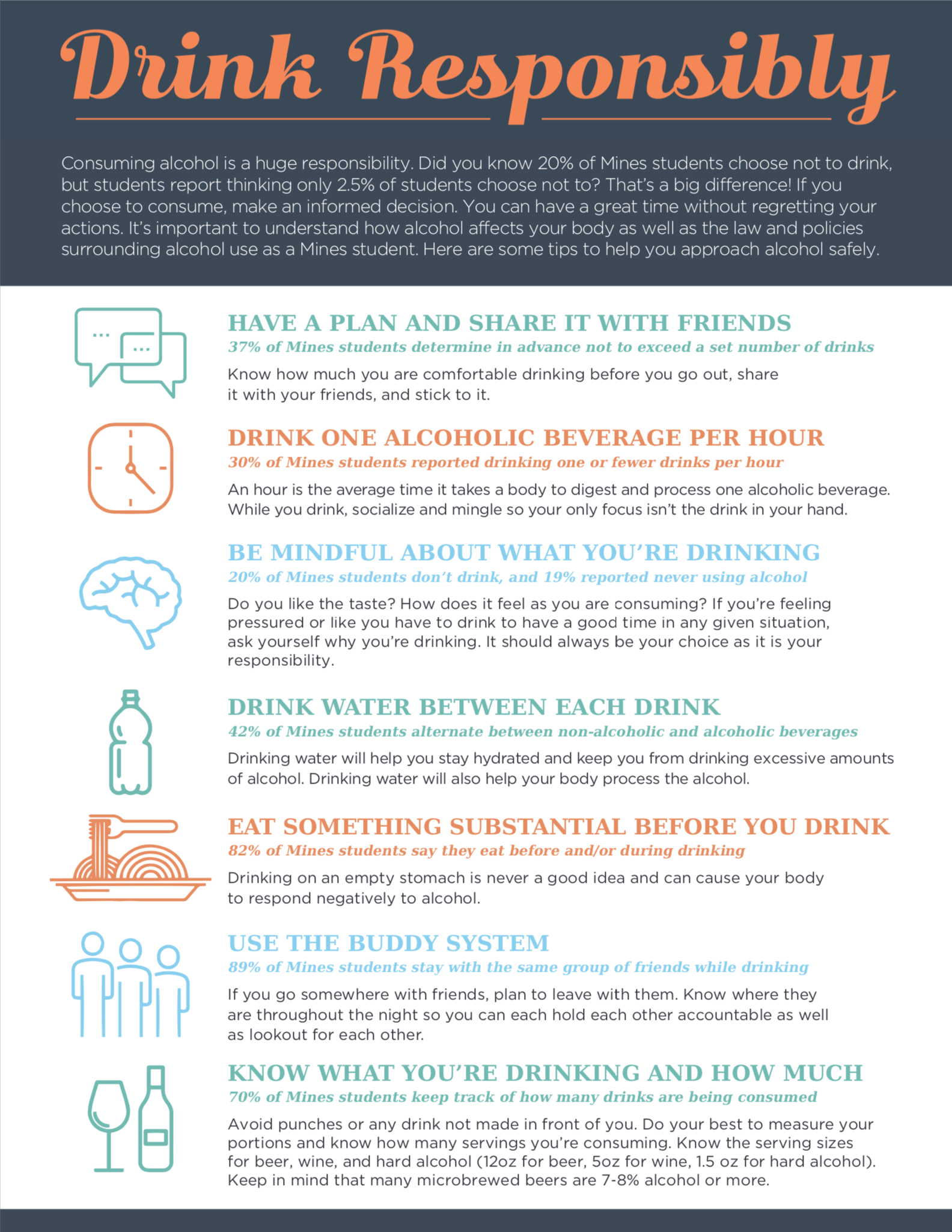
Remember, also, that over-the-counter and prescription medications can affect the way that alcohol impacts the body. The National Institute on Alcohol Abuse and Alcoholism has a helpful pamphlet that lists many medications that can cause harm when taken with alcohol and describes the effects that can result.
